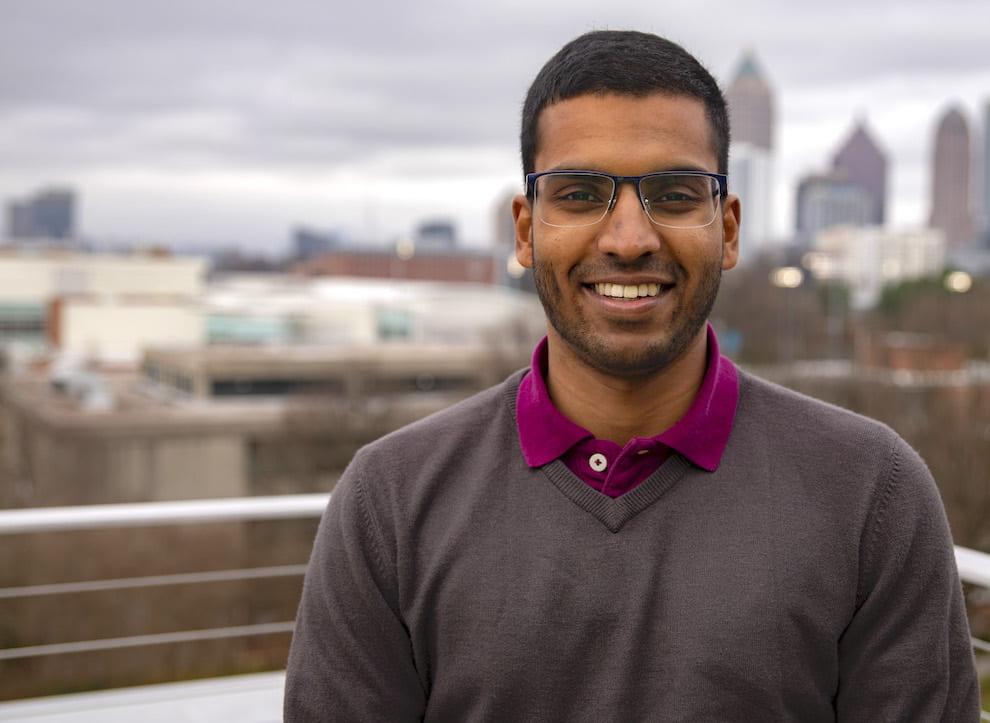
Aditya Vishwanath (BS CS 18) Q&A
Why is it important to celebrate AAPI Heritage Month?
People of Asian origin have demonstrated incredible grit and resilience in the US over the last few centuries to build and provide opportunities for themselves and for the diverse communities they live in across the country. In most cases, they have come from very simple backgrounds, and have had to challenge multiple stereotypes and prejudices to get to where they are today. There is a lot of inspiration in their experiences — and we need to celebrate these stories.
How do you define successful leadership?
I think it is critical to have a deep sense of humility and gratitude for everyone and everything that comes your way. I look for this in every person on my team as well. You have to truly and fundamentally care about the people you serve with your product/solution. I also try to foster a culture where we are intensely focused on doing our everyday tasks with care and precision, rather than focusing too much on the goals/outcomes of the tasks. (The goals usually take care of themselves when you are deeply committed to the process of doing things.) Finally, being intense (and showing intent), while simultaneously being playful and having fun along the way is key to building a team of leaders.
What are the biggest challenges to successful leadership?
Maintaining an unwavering sense of optimism for the problem you are trying to solve. And also managing personal time! I am terrible at delegating and I work hard on getting better at this every day.
Why did you choose to earn a degree in computer science?
I have always been fascinated by the science and logic of algorithms and hard problems. I also saw the tremendous influence (positive and negative) that technology had on K12 education. As an aspiring lifelong learner and school teacher, I saw a CS degree as a stepping stone to deepen my understanding of the impact of technology in the classroom. Especially how technology interacted with various stakeholders at the intersection of culture, gender, values, language, ethnicity, race, etc.
What is something about your time at Georgia Tech/College of Computing that you will carry with you, or that still informs your professional life?
My friends, peers, and advisors! A small village of people sustained and inspired me constantly at Georgia Tech and I attribute most of the hard decisions I made as an undergrad to the support I received from my research advisors, my friends, and other mentors at Tech. These hard decisions — such as taking the plunge to spend multiple summer semesters bootstrapping a company, or starting a nonprofit organization, or doing a PhD right after my undergrad — all helped shape many of my early ideas in education technology and global development, which are areas I intend to dedicate the rest of my career working towards.
Beyond money, awards, and job titles, what’s the biggest measure of success?
Probably how excited or happy I am with the work I am doing? I’ve never really considered these other external factors as benchmarks for success. I think intrinsic values, like a personal sense of fulfillment, gratitude, and self-efficacy are more accurate & reliable measures to calibrate against.
What has been the biggest challenge you have faced in your career?
Starting something new is always hard, especially when so many people around you tell you that you’re ‘wasting your time’, or that the problem you’re working to solve (access to quality education) is too hard, complex, and hasn’t been solved in decades. I am still in the very early stages of everything I want to accomplish in the field of education! I do want to acknowledge that I have certainly had the privilege of also being surrounded by incredible mentors and peers who constantly inspire and constructively challenge my thinking and my work.
What’s the next big thing you’d like to accomplish?
In the short term, I want to grow Inspirit to a place where we can measurably increase the participation of more students around the world in STEM and science careers — by offering them immersive and social experiences where they are constantly inspired by the wonders of science and STEM. Learning needs to be playful, inclusive, and student-driven. And I want to build that future in the next couple of years through my work at Inspirit, as well as through my work in India with MakerGhat.

